- Products
- Platform
- Solutions
- Customers
- Support
- Pricing
 Website & Mobile & E-commerce
Website & Mobile & E-commerce
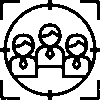 CRM
CRM
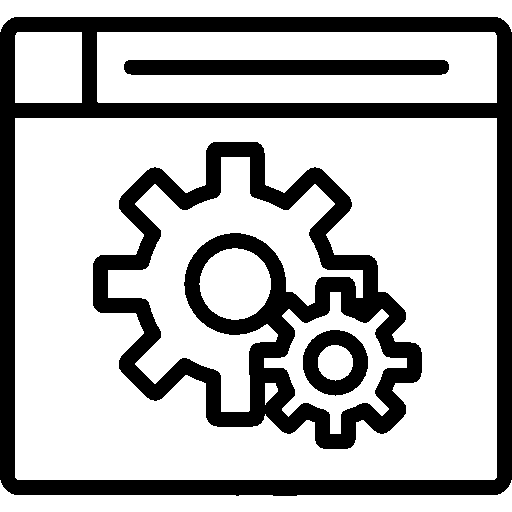 Operation & ERP
Operation & ERP
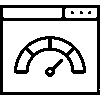 Productivity
Productivity
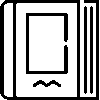 Support
Support
 Community
Community
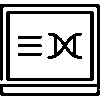 Learn
Learn
Application Support Point

It aims to control and follow your company expenses in a professional sense. Especially for companies, it is necessary to order and manage their expenses on a historical basis, and intensive accounting processes are required. Expenses application minimizes this burden and brings a fast management approach.
- Version History
- Application Features
- User Manual
- FAQ
- Community
Expense Management
You can make your financial management easier by dividing expenses into specific categories. This way, you can track in detail which areas your expenses are spent.
You can perform detailed analysis by classifying expenses according to specified items. In this way, you can easily see the share of certain expense types in total expenses.
You can track your expenses in more detail by defining cost centers for different departments or projects within the company.
Expense items selected in applications such as cash, bank, invoice can be viewed in detail on the expense report screen.
You can analyze expenses under different headings such as By Group/Category, By Expense Items, By Category and Item, By Cost Center, and better evaluate the financial status of your business.
Filtering and Personal Settings
You can customize your usage experience by viewing your expenses with Tab or Popup options.
You can sort your expense records by Record Date, Update Date or Expense Date to have a more organized view.
You can determine the data density according to your needs by displaying 25, 50, 100, 250 or 500 records on the expense listing page.
General Configuration and Settings
Users can customize the color of the app.
You can make your financial management more efficient by dividing your expenses into specific groups.
You can report your expenses including or excluding VAT and make more accurate tax calculations.
Definition
The Expenses app is a software tool that allows individuals or businesses to track their finances, record their income, and perform financial analysis. Such apps help users categorize their expenses, create budgets, and achieve their financial goals.
Aim
The main purpose of the Expenses app is to enable users to better manage their finances.
Key Benefits
- It helps users learn more about their spending habits and better understand their financial situation.
- It allows users to stick to their set budgets and prevents overspending.
- Thanks to detailed analysis of expenses, it helps to identify unnecessary expenses and reduce these expenses.
- Integrated with bank accounts and credit cards, it automatically records expenditures and categorizes these expenditures.
- It helps users set long-term financial goals and plan to achieve them.
Expenses Application Login Screen
This is the login screen of the Expenses application.

Expenses Screen
This is the screen where the expenses report is displayed.

On the Expenses report screen, Order, Customer, Description, Expense Date, Amount, VAT, Amount+VAT information are listed in a table.
Analysis
Analyzes ; It is made under four headings: Group Categories, According to Expense Items, Category and Item, Expense Center.
By Group / Categories

Listed by Group/Categories.
According to Expense Items

Expense Item and amount information are listed in a table.
Category and Item

Expense items are listed according to categories. Grand total information is given.
Cost Center

Cost center expenses are listed according to categories. General total information is provided.
Configuring Personal Settings
Kişisel Ayarlar, kullanıcının bir uygulama üzerindeki deneyimini özelleştirmesine olanak tanır. Kullanıcının kendi tercihlerine göre çeşitli ayarları yapılandırabilmesini sağlar.

Giderler uygulamasını özelleştirmek için Listeleme Ayarları yapılır.
Listeleme Ayarları
Detay Gösterim Yöntemi; Sekme veya Popup seçilir. Gider kartı seçimine göre açılır
Varsayılan Takvim Filtresi; Günlük, Haftalık, Aylık, Senelik veya Tümü olarak seçilir. Gider listesinin seçilen takvim filtresine göre listelenmesini sağlar.
Varsayılan Tarih Filtresi; Kayıt Tarihi, Güncelleme Tarihi, Gider Tarihi seçilir. Gider listesinin seçilen tarih filtresine göre listelenmesini sağlar.
Sayfalamada Kayıt Sayısı; 25, 50, 100, 250 veya 500 olarak seçilir. Gider liste sayfasında gösterilecek kayıt sayısının seçimi yapılır.
Filtering
Filtreleme, uygulamada belirli kriterlere göre verileri listelemek için kullanılır. Kullanıcıya yalnızca ilgili veya uygun verileri sunmaya yardımcı olur.

Filtreleme ayarları ekranında Tarih Aralığı, Şube, Gider Kalemi Grupları, Gider Kalemi Kategorileri alanları seçilerek filtreleme yapılır.
Sıralama; Kayıt Tarihi, Güncelleme Tarihi veya Gider Tarihi seçilerek sıralama yapılır.
Configuring General Settings
Settings are customized by selecting the settings to be used according to the company's preference from the General Settings menu.

The color of the application is saved by selecting the preferred color.
If the company has more than one branch, expense items can be defined separately according to the branches.
The Cost Center feature is available.
The Reverse Transaction Receipt Creation feature can be used.
Receipt (Invoice) Creation feature is available
VAT can be used in analysis.
Adding Expense Categories Pre-Definitions
Preliminary definitions of expense categories are defined on this screen.

Header information is available on the Preliminary Definitions screen on the Expense Categories screen.
Expense category is added by pressing the add new button.

To add an Expense Category, Header information is entered. After all operations are completed, they are saved by pressing the Save button.
Adding Expense Item Pre-Definitions
Preliminary definitions of expense items are defined on this screen.

Header information is available on the Expense Items Preliminary Definitions screen.
The expense item is added by pressing the Add New button.

Expense Item Header information is entered. After all operations are completed, they are saved by pressing the Save button.
Adding Expense Groups and Categories
Expense Groups and Categories; Three operations are performed: Groups and Categories, Breakdown by Companies and Bulk Update.
Group – Categories can be added and edited, expenses can be managed categorically.
1. Process Groups and Categories
Groups, Categories and Expenses are listed as sub-breakdowns. On the Expenses screen, Order, Expense Item and Accounting Code information are listed in a table.
By pressing the + button next to the groups , the Add New Group page opens.
Add New Group
To add a new group, Group Name and Order information are entered. After all operations are completed, they are saved by pressing the Save button.
By pressing the + button next to Categories , the Add New Category page opens.
Add New Category
Group is selected to add a category. Predefined Category, Category Name, Code, Sequence information is entered. After all operations are completed, they are saved by pressing the Save button.
New Addition
An expense item is added.
To add a new expense item, Group, Category, Predefined Title, Title, Budget Code, Currency, VAT, Quantity Type, Order information are entered. After all operations are completed, they are saved by pressing the Save button. The General Expenses Card is opened by clicking on the expense items.
General Expenses Card; It is divided into four groups: Edit, Cost Centers, Related Payments, and Current Product matching.
Cost Centers
Cost centers are selected and saved on the cost centers screen.
Associated Payments
On the Related Payments screen, Sequence , Customer , Description , Record Date , Update Date , Related Payment Date, Amount information is listed in a table.
Current Product Matching
On the current product Matching screen, Order, Product/Code, Product Name, Number of Selected Products are listed in a table. The product is selected to match.
2. Breakdown by Transaction Companies
Breakdowns are listed according to companies. The preferred title is selected. After all operations are completed, they are saved by pressing the Save button.
3. Process Batch Update
Bulk updates can be made by selecting the group on the bulk update screen.
Cost Centers
This is the screen where cost centers are displayed.

Cost Center Definitions Sequence, Title, Active/Passive, Code, Recording Date, Issue Date information are listed in a table.
The cost center is added by pressing the Add New button.

To add a Cost Center, Title, Code, Cost Center Type and Status information are entered. After all operations are completed, they are saved by pressing the Save button.
View Authorized Users
Having certain authorities in the company is an important element that increases organizational efficiency and workflow. Delegation ensures a clear distribution of tasks and responsibilities.

On the Authorized Users screen, users are registered by giving them the necessary authorizations.
-
How can I view expense reports?
On the Expenses screen, expense items selected in applications such as cash, bank, invoice are automatically reported and displayed here.
-
What information is included in expense reports?
Expense reports include information on order, customer, description, expense date, amount, VAT and total amount (including VAT).
-
Based on what criteria can I review expense reports?
You can view and analyze expenses based on criteria such as date, expense item, category, cost center and branch.
-
How can I view expense analytics?
By going to the Analysis screen, you can examine the expenses in detail under headings such as By Group/Category, By Expense Items, Category and Item, and Cost Center.
-
How do I filter the expenses list?
You can filter the expense list based on criteria such as Date Range, Branch, Expense Item Groups and Categories.
-
How do I change the default date filter?
You can filter expense reports based on date by changing the "Default Date Filter" option from the Personal Settings screen.
-
How can I increase the number of records displayed per page?
In the Listing Settings section, you can change the "Number of Records in Pagination" option to 25, 50, 100, 250, or 500.
-
How do I define expense items and categories?
You can define new expense items and categories from the Settings >> Expense Category Pre-Definitions screen.
-
How can I change the color of the app?
You can choose your preferred color by going to the "Set App Color" section from the Settings >> General Settings screen or enter the color code manually.
-
How do I use the cost center feature?
You can classify expense reports according to cost centers by activating the "Use Cost Center Feature" option from the Settings >> General Settings screen.
Questions
Ask questions and get answers from other Entranet users.


















